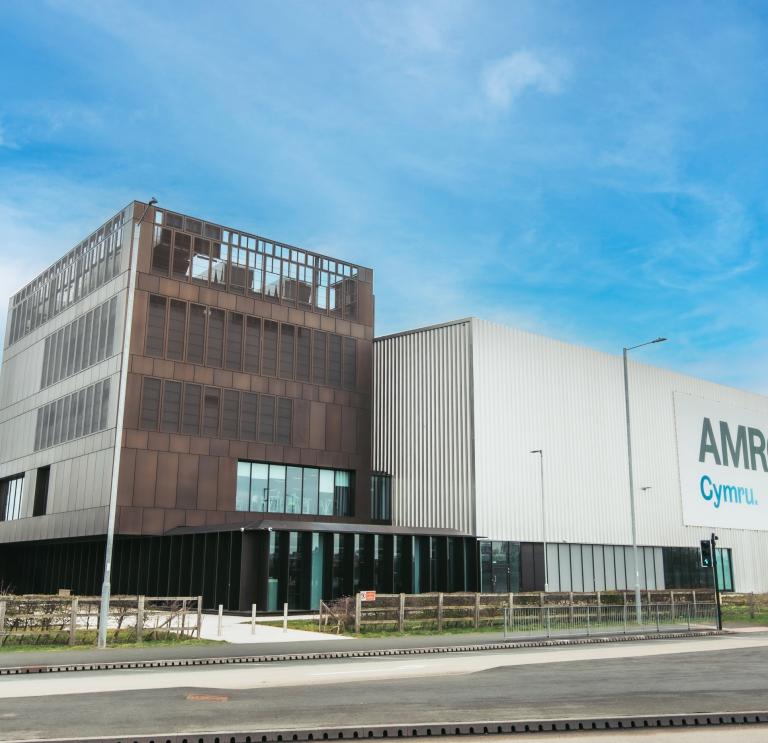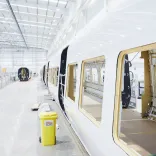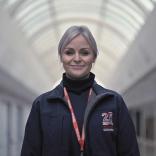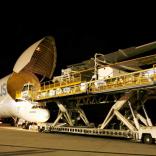Business backstory
The University of Sheffield Advanced Manufacturing Research Centre (AMRC) is a network of world-leading research and innovation centres working with manufacturing companies of any size from around the globe. Industrial partners range from global giants like Airbus, BAE Systems and Rolls-Royce to smaller companies.
Established in 2001, the AMRC has a global reputation for helping companies overcome manufacturing problems. It transforms industrial and economic performance by making step changes in productivity, increasing competitiveness, developing new products and processes and training new talent and skills.
Now a model for collaborative research involving universities, academics and industry worldwide, the AMRC has a presence in three UK regions: South Yorkshire, North Wales and Lancashire.
How has the Welsh Government helped?
AMRC Cymru opened in Broughton in November 2019. The state-of-the-art centre, which was fully funded with £20m from the Welsh Government and is managed by the University of Sheffield, focuses on advanced manufacturing sectors including aerospace, automotive, nuclear and food in the key research areas of future propulsion, sustainability and digital manufacturing.
Speaking at the opening event, Professor Koen Lamberts, President and Vice-Chancellor at the University of Sheffield, said: “We are really proud to be working with the Welsh Government on this bold and ambitious project which will help keep Wales at the forefront of wing manufacture and put world-leading research and development at the heart of a vibrant Welsh economy.
“The University of Sheffield AMRC has built a truly global reputation for world-class, industry focused innovation which drives manufacturing and productivity growth and we’re delighted to be bringing our extensive expertise and experience to Wales.”
The facility operates a 2,000 square metre open access research area. In addition, Airbus is the first major tenant with a platform to develop its next generation wing technologies aligned to its Wing of Tomorrow programme, which is part of a global Airbus investment in research and innovation. Wing of Tomorrow is Airbus’ largest research and technology programme taking place globally; it is a global partnership with the entire industry to develop and demonstrate the physical technology and digital capability needed to deliver the next generation of aircraft wing.
Paul McKinlay, Airbus’ Senior Vice President, said: “AMRC Cymru is an enormous opportunity to create much more environmentally friendly product and manufacturing systems. It is going to be an enabler and a game changer for Airbus to change its environmental footprint for the future.
“This facility is world-class and the perfect home for our most significant research and development programme, the Wing of Tomorrow. The programme will inform the next generation of wings so when we launch a new aircraft programme, we’ll have the technologies and systems ready to design and build the wings at the rate we need them.”
Why Wales?
The AMRC is a member of the High Value Manufacturing Catapult, a consortium of leading manufacturing and process research centres, backed by the UK’s innovation agency, Innovate UK. AMRC Cymru is the first HVM Catapult centre in Wales and it is predicted it could increase GVA to the Welsh economy by as much as £4 billion over the next 20 years.
AMRC Cymru Research Director, Andy Silcox, said: “Our talented team of manufacturing engineers are incredibly enthused by the opportunity to help Welsh manufacturers across all sectors, not just aerospace, evolve and adopt the new technologies of Industry 4.0.
“We believe that we can be a major catalyst for a culture of innovation in Welsh manufacturing, which will drive our industrial partners to become global leaders in sustainability and profitability.”
In 2020, AMRC Cymru played a crucial role in the manufacture of ventilators in response to the Covid-19 pandemic. Airbus workers were redeployed as part of the VentilatorChallengeUK consortium of UK industrial, technology and engineering businesses which produced 13,437 ventilators for the NHS in record time.




